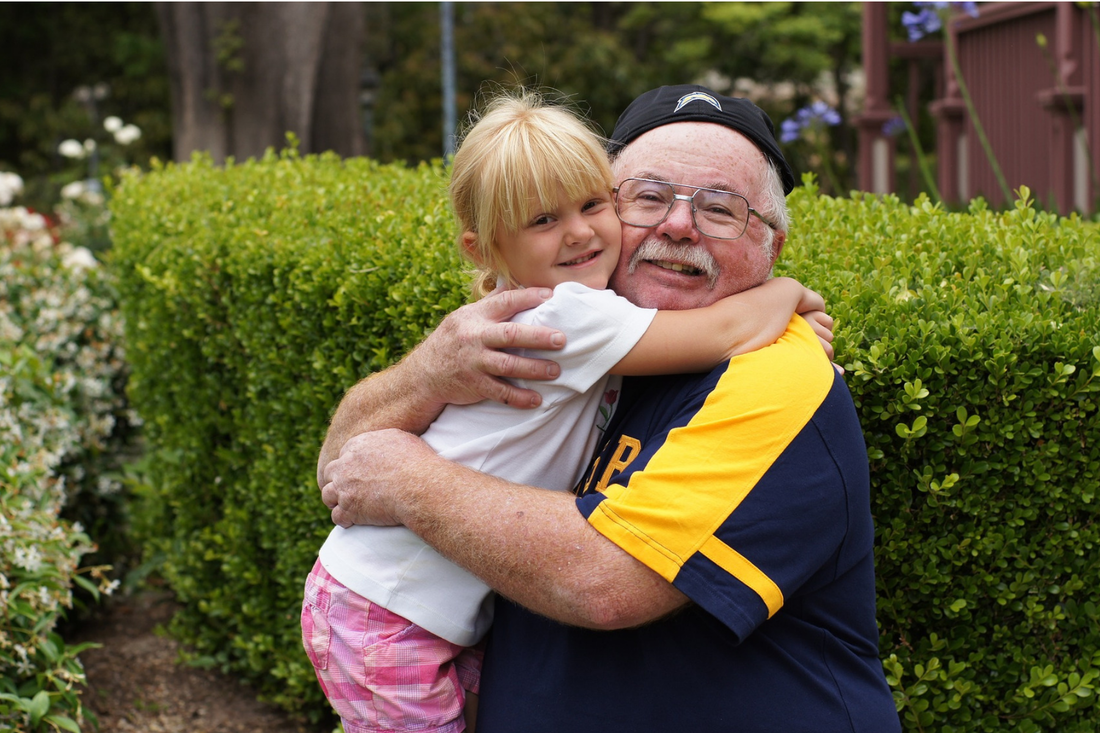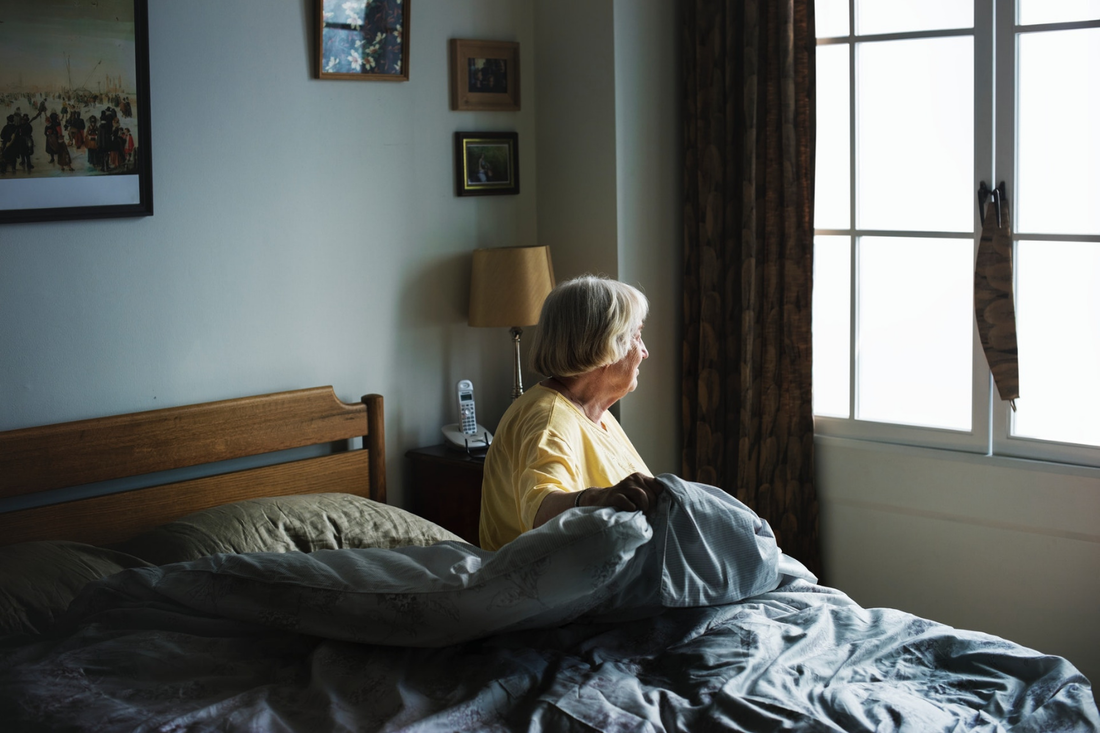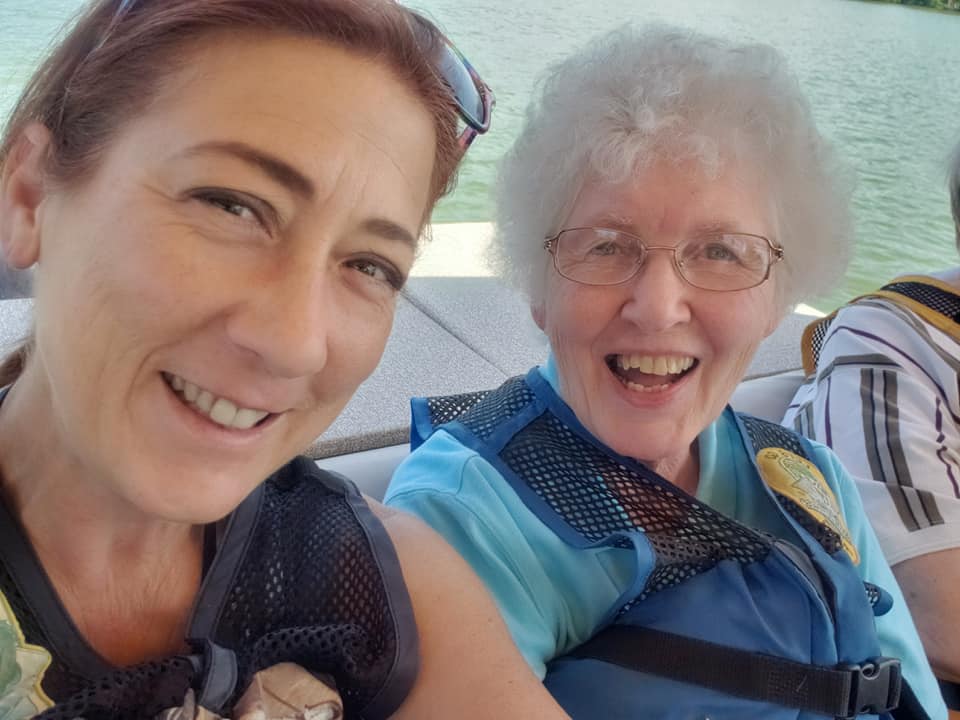|
Finding enjoyable and stimulating activities that are within the ability level of your loved one with Alzheimer’s can be a challenge to do alone. That’s why we’ve put together this list of activities that are both fun and stimulating for people who have Alzheimer’s. Creating ArtCreating art (whether it’s through painting, drawing, sculpting or another art activity) is an activity that can be both calming and stimulating. Since creating art is a relaxing activity, it can help reduce aggressive behavior and it can also stimulate the brain in a creative way. Experts say that creating art can help with the self- expression of people who have Alzheimer’s. At the Martin Luther Campus Memory Care Community, we partner with Northern Clay and the Bloomington Center for the Arts to provide art therapy for our residents. We offer fun art activities like water coloring, making bean mosaics, crafts, and more! MusicStudies have shown that many adults with Alzheimer’s can still remember the music that they enjoyed throughout their childhood and adult life. Playing an instrument or listening to music is a stimulating activity for those with Alzheimer’s, because the part of our brains that is stimulated when we hear music is called the “salience network” and this section of our brains is rarely affected by dementia and mental illness. At the Martin Luther Campus Memory Care Community, we partner with MacPhail Music for Life to offer our residents music therapy and enjoyable activities like drumming, music making, and more! Physical ActivitiesEngaging in physical activity can improve coordination, increase strength and flexibility and can be mentally stimulating. According to a study involving 50 adults with mild Alzheimer’s, if those with Alzheimer’s exercised at least three times weekly for 40 minutes, their cognitive function scores increased and their adverse psychiatric symptoms declined. Some great examples of exercises for individuals with Alzheimer’s are dancing, gardening, stretching, walking, aquatic therapy and water aerobics, and more. At Martin Luther care center, we offer exercise and balance programs, aquatic therapy, and more. Board Games, Puzzles and Card GamesPlaying card games, board games, and completing puzzles can be very stimulating. In fact, there are multiple games that have been created to stimulate and invigorate the brains of individuals who have Alzheimer’s. At the Martin Luther Campus Memory Care Community, we offer fun group activities like matching puzzle games, Qwirkle, Shake Loose a Memory, card games, double deck matches, board games, dice games, The Price is Right, and more! Simplify ActivitiesAs the disease progresses, it may become more difficult for your loved one to complete certain activities. The good news is that you can adjust and simplify activities and hobbies to match the ability level of your loved one. For instance, someone who cannot play certain instruments anymore can participate in drumming or listening to music, someone who loved running can start taking walks instead, and someone who was an avid reader can now look at the pictures and enjoy a story that is read to them. At the Martin Luther Campus Memory Care Community, we are committed to lifelong learning, creative arts engagement, and providing stimulating activities that are designed to promote brain health. Are you interested in transitioning to a memory care community or do you have a loved one that needs memory care? Call Amy at 952-948-5167 for more information and to schedule a tour of the Martin Luther care center today. Martin Luther Campus is part of the Ebenezer family of Lutheran Senior Care Communities. We provide transitional care and assisted living apartments for seniors in Bloomington and Richfield. We also have adult day clubs and memory care programs for seniors living at home. We’re located at 1401 East 100th St. Bloomington, MN. Are you interested in transitioning to assisted living or do you have a loved one that needs assisted living? Call Amy at 952-948-5167 for more information and to schedule a tour today. References:
https://blog.caregiverhomes.com/memory-care-activities-stimulating-activities-for-alzheimers-patients https://www.kindlycare.com/dementia-alzheimers-activities/ https://www.aplaceformom.com/blog/2013-10-31-art-therapy-good-for-brain/ https://www.aarp.org/health/dementia/info-2018/dementia-alzheimers-art-therapy-new.html https://www.verywellhealth.com/exercise-benefits-for-alzheimers-9866
0 Comments
Barry ZeVan (aka "The Weatherman") shares life experiences and explains the best thing about family. Ebenezer communities, from residents to staff, certainly are exemplary with their emphasis on bringing people together as, in my opinion, almost extended families in home-like surroundings that generate warm hearts and perpetuate a welcoming family atmosphere. One of my recent visits to an Ebenezer community was, for me, close to experiencing an Epiphany regarding witnessing the depth of caring and excellent quality of life that made that community seem more like a "world" rather than a "community'. Nothing was lacking, especially in regard to how the residents interacted as family members who genuinely enjoyed being with each other. From a personal standpoint, my own life yearned for the warmth and security exemplified at Ebenezer communities from the time I knew how to think. Naive as it might have been, the FATHER KNOWS BEST example of how family life should be, even before that television series debuted, was, to me, a life that could really exist, rather than simply a script-writer's dream or fantasy. (Sidebar: I had the pleasure to meet both Jane Wyatt and Elinor Donohue at different times of my life. If your memory might need refreshing, Ms. Wyatt was Robert Young's character's wife on the show and Elinor Donohue the elder of the three children portrayed in the series. In person, both Ms. Wyatt and Ms. Donohue were as warm as the characters they portrayed on that wholesome series of programs.) As unlike FATHER KNOWS BEST as a life could be, and stressing how important family life is, my early years began without a father. He left my mother when I was barely aged 1-1/2. He walked out of the apartment one Sunday to supposedly get a newspaper and never returned. During those days of early World War Two, my mother worked for the War Department, sometimes until 9 or 10 p.m. Because of her schedule, she taught me how to make sandwiches (at age five), as well as open and heat the contents of cans of soup for my weeknight dinners. I also listened to the radio every night, in the dark. The programming was educational talk as well as classical music on the station whereon I would soon become a boy singer every Saturday morning for five years (KDKA, the world's first commercial radio station). In a nutshell, and not to be stated as a "pity party", my young, and even not-so-young, years, were lonely, with the loneliness amplified when I'd also listen to some popular radio soap operas with scripts focused on families and family life. Once again, even before FATHER KNOWS BEST, I wanted a "normal" family existence. The kind of family I wanted as a child eventually materialized for me in later years, with the blessing of a wonderful marriage, two daughters (one of whom, I'm saddened to state, passed away two years ago at age 54 from ovarian cancer), four grandchildren and nine great-grandchildren. There have been many other blessings, including being a spokesperson for Ebenezer, the exemplars of knowing how to illustrate what it is to enjoy the true happiness of perpetuating family life, especially for those of advanced ages, as a mission-driven, values-based organization. Martin Luther Campus, an Ebenezer Senior Community, has a welcoming family atmosphere and skilled care teams who get to know our residents is if they were family. Are you or a loved one looking for assisted living, memory care, transitional care, long term care, or an adult day program? Call Amy at 952-948-5167 for more information and to schedule a tour today. Martin Luther Campus is part of the Ebenezer family of Lutheran Senior Care Communities. We provide transitional care and assisted living apartments for seniors in Bloomington and Richfield. We also have adult day clubs and memory care programs for seniors living at home. Martin Luther care center is located at 1401 East 100th St. Bloomington, MN. Are you interested in transitioning to assisted living or do you have a loved one that needs assisted living? Call Amy at 952-948-5167 for more information and to schedule a tour today
The Alzheimer’s Association facts and figures report is a great reference for gaining knowledge about Alzheimer’s disease. Check out some of the helpful Alzheimer’s disease facts from this report. Millions of Americans are Affected by Alzheimer’sAccording to the Alzheimer’s Association 2019 facts and figures report, around 5.8 million Americans have Alzheimer’s disease. Out of the 5.8 million people who have Alzheimer’s, 81 percent are 75 years and older. However, Alzheimer’s dementia is underdiagnosed, so a large percentage of Americans may have Alzheimer’s, but don’t know it. Women have a Higher Risk of Getting Alzheimer’s Two-thirds of Americans who have Alzheimer’s are women. Some of the possible social and biological reasons why more women have Alzheimer’s is that women generally live longer than men. Also, a number of studies have shown that the APOE-e4 genotype (a genetic risk factor for Alzheimer’s) may have a stronger association with Alzheimer’s in women than in men. Alzheimer’s Disease is Progressive Alzheimer’s is a progressive disease, which means that it worsens over time. As time goes on, Alzheimer’s symptoms (such as memory loss or repetitive behaviors) begin to increase and can interfere with the completion of daily living activities. Stages of Alzheimer’s Currently, the three stages of Alzheimer’s are preclinical Alzheimer’s disease, mild cognitive impairment (MCI) due to Alzheimer’s disease, and dementia due to Alzheimer’s disease. In the preclinical Alzheimer’s stage, the brain begins to change, but symptoms do not appear yet. During the MCI stage, changes in thinking abilities may become obvious to family members, but everyday activities are not extremely affected yet. In dementia due to Alzheimer’s stage, memory and behavioral symptoms usually prevent a person from completing daily living activities. The Effect of the Aging Baby Boomer Generation The baby boomer generation is a huge segment of the United States population and they are now between the ages of 55 years old and 75 years old. Therefore, as the baby boomers continue to get older, there will most likely be an increase in the number of new and existing cases of Alzheimer’s. By 2025, the number of people ( who have Alzheimer’s) age 65 and older is projected to increase by 27% more than 5.6 million age 65 and older affected in 2019. If you have a loved one who has Alzheimer’s, it’s important to talk with your doctor and consider starting the process of transitioning your loved one into a memory care community. At the Martin Luther Campus Memory Care Community, we provide person-centered care, thoughtfully designed spaces, engaging activities, experienced staff, family education and support. Martin Luther care center also maintains purposeful partnerships with the Alzheimer’s Association, ACT on Alzheimer’s, and more. Call Amy at 952-948-5167 for more information and to schedule a tour today. References: https://communityrising.kasasa.com/gen-x-gen-y-gen-z/ https://www.alz.org/media/Documents/alzheimers-facts-and-figures-2019-r.pd Martin Luther Campus is part of the Ebenezer family of Lutheran Senior Care Communities. We provide transitional care and assisted living apartments for seniors in Bloomington and Richfield. We also have adult day clubs and memory care programs for seniors living at home. We’re located at 1401 East 100th St. Bloomington, MN. Are you interested in transitioning to assisted living or do you have a loved one that needs assisted living? Call Amy at 952-948-5167 for more information and to schedule a tour today.
If you’ve noticed that your loved one has been misplacing things, had difficulty doing familiar tasks or has had mood or personality changes, they may be dealing with the beginning stages of dementia. We've rounded up a list of early signs of dementia to help you and your loved one. 1. Difficulty Doing Familiar TasksA person who shows the early signs of dementia may have difficulty with understanding and completing familiar tasks such as operating a television remote, doing the laundry or making a cup of coffee. This is often one of the first signs of dementia, and it’s important to treat it seriously and not dismiss it. 2. Misplacing ThingsA person who has the beginning onset of dementia may put things in unusual places or may forget where an item goes, even if that item has been put in the same location for years. If your loved one has lost something, it may be a struggle to retrace steps to find the lost item. 3. Mood and Personality ChangesFrequent mood changes and the tendency to become easily depressed can be telltale signs of the beginning stages of dementia. Your loved one’s personality may change and he or she may become impatient, anxious, and irritable. 4. Confusion with Time or Place Your loved one may be habitually confused about what year or season it is, where or why he or she is at a certain location. Your aging parent or friend may struggle with finding the way back home after going on a walk or may forget how to get to their favorite store and back. 5. Being Repetitive and ForgetfulSome of the first signs of dementia are that your loved one may tell you the same story every day or they may forget what somebody else has said recently. Many caregivers note that their loved one begins to ask the same question over and over, even when this question has been answered multiple times. 6. Struggling to Deal with ChangeA person who is starting to show signs of having dementia will want to stay within his or her own controlled environment and won’t want to travel as much to new and foreign places. He or she may crave routine because new experiences and places may be daunting. 7. Feeling UnmotivatedTasks and activities that used to be simple and fun may become difficult and frustrating for someone who is beginning to show signs of dementia. If your loved one can’t do activities that once gave a sense of purpose and joy, he or she may become unmotivated to do anything. 8. Neglecting Hygiene and NutritionIf your family member begins to ignore hygiene, personal care and nutrition, these could be warning signs that your family member is beginning to get dementia. 9. Impaired JudgementA person who is going through the beginning stages of dementia may have impaired judgement. For instance, he or she may easily fall prey to phone scams, give large amounts of money away or dress inappropriately for the weather. 10. Visual-Spatial DifficultiesAnother warning sign of dementia is visual and spatial difficulties. Your loved one may have issues with depth perception, reading, recognition of places and people, or determining color or contrast. It’s difficult to watch someone you love struggle with a memory disorder like dementia, but it’s important to be there for them and ask for help. Martin Luther care center Adult Day programs can help your loved one stay independent for longer through routine and purpose. Memory care can make a dramatic difference in a person’s life by helping them feel safe and in control. We know how scary it can be when you suspect a loved one may have dementia. Our compassionate staff is here to aid you with information and support. Contact us today to get started. Martin Luther Campus is part of the Ebenezer family of Lutheran Senior Care Communities. We provide transitional care and assisted living apartments for seniors in Bloomington and Richfield. We also have adult day clubs and memory care programs for seniors living at home. We’re located at 1401 East 100th St. Bloomington, MN. Are you interested in transitioning to assisted living or do you have a loved one that needs assisted living? Call Amy at 952-948-5167 for more information and to schedule a tour today.
Sorting through the options of senior care can be an intimidating task. We’ve created a list comparing in-home care and adult day programs to help with the process of choosing senior care. What is In-Home Care? In-home care is where a caregiver comes to your loved one’s home to help your loved one with bathing, dressing, and personal hygiene. Caregivers can also prepare meals, perform light housekeeping and laundry, and run errands for your loved one. Depending on the caregiver, some medical assistance may be provided and caregivers who offer in-home care might work full-time, part-time, in shifts, or on an as-needed basis. What is an Adult Day Program?An Adult Day Program offers seniors social activity and care during the day while allowing them to return to their homes at night. At the Martin Luther Campus Adult Day Program, we offer exercise, spiritual services, snacks & meals, music and special outings for Adult Day Club members. Important services like bathing, medication management and therapy are offered for a fee. Pricing Generally, an in-home caregiver will charge by the hour and an Adult Day Program will charge by the day. Usually, the cost for an Adult Day Program is substantially less than hiring an in-home caregiver. On average, an in-home caregiver costs about $21 an hour ($147 for 7 hours of care). At the Martin Luther Campus Adult Day Program, it costs $94.36 for a full day (7 hours). Socialization Opportunities In-home care is usually only administered by one person, so having only one caregiver visit inside the home can sometimes mean fewer opportunities for your loved one to socialize or meet new friends. With only one caregiver coming, your loved one may feel more isolated and lonely. However, an Adult Day Program provides seniors with the opportunity to interact one-on-one and in groups with other seniors, make new friends, and spend time socializing. At the Martin Luther Care Center Adult Day Program, we provide many activities for our Adult Day Club members to interact with each other. Some of the interactive activities that we offer are trivia activities, bingo, fun outings, music, crafts, and more! Are you interested in learning more about the benefits of the Martin Luther Adult Day Program? Call Heather at 952-948-5154 for more information and to schedule a tour today.
Martin Luther Care Center is part of the Ebenezer family of Lutheran Senior Care Communities. We provide transitional care and assisted living apartments for seniors in Bloomington and Richfield. We also have adult day clubs and memory care programs for seniors living at home. We’re located at 1401 East 100th St. Bloomington, MN. Are you interested in transitioning to assisted living or do you have a loved one that needs assisted living? Call Amy at 952-948-5167 for more information and to schedule a tour today. |
Director of Community Relations
Hello friends, my name is Kate and I'd love to share with you ALL of the wonderful things happening at Martin Luther Campus. Be sure to check our Blog, Lifestyle page and Facebook page often to stay updated on the happenings at our community! Archives
November 2023
Categories |
|
telephone |
|
DIRECTIONSimap
|
© 2021 Fairview Health Services
|






 RSS Feed
RSS Feed

